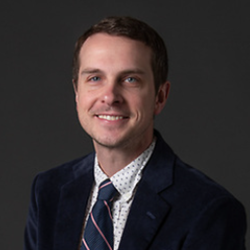Directors who disagree politically with an incoming CEO are more likely to leave, study shows
Speaking up about political views is becoming more common with political ideologies playing an increasingly pervasive role in shaping how people interact.
Studies have shown that people not only prefer those who share their ideals, but they also dislike others with differing political ideologies, including in business.
A new study from the University of Notre Dame shows that the political ideology of an incoming, newly hired CEO influences whether directors on the board of a company choose to continue or leave their positions.
“Director departure following political ideology (in)congruence with an incoming CEO” is forthcoming in the Strategic Management Journal from lead author John Busenbark, assistant professor of management and organization at Notre Dame’s Mendoza College of Business.
The study looked at a sample of directors on boards of publicly traded firms following CEO successions between 2008 and 2012. The researchers examined the Federal Election Commission’s individual political donation records to develop a political ideology score for all directors and CEOs in their sample. They then employed a sophisticated analytic technique, allowing them to reveal the extent to which directors are apt to leave their positions following political disagreement with the incoming CEO or remain in their seats with ideological agreement.

The study states, “Executives’ political ideologies have a profound impact on the organization, so it is imperative to understand whether the political views of those in the upper echelons play a role in cultivating who sits at the apex of the firm.”
“We show that directors who disagree politically with the new CEO are increasingly apt to leave the board, and directors who share the CEO’s political views tend to remain,” said Busenbark, who specializes in corporate governance. “But even more interesting is that we find political disagreement plays a much more salient role in departure than political agreement plays in retention.”
Most research in this area assumes that political agreement and disagreement are simply two sides of the same coin. This study, however, finds that differing political opinions between two people stimulate much more vehement reactions than do those of similar ideologies.
“Our research suggests that a liberal director, for instance, is much more likely to leave the board following the hiring of a conservative CEO than is a conservative director apt to remain on the board after hiring that same conservative CEO,” Busenbark said.
Broadly speaking, the study reveals that individuals tend to internalize political “hatred” or intolerance more than they do acceptance. This means that people are more likely to avoid others who disagree with them politically to a greater degree than they seek out or welcome others who share their ideological view.
“At the same time, we also find that this viscerally negative reaction to political disagreement is weakened considerably when the people have some experience with one another and can evaluate each other on other merits beyond political ideology,” Busenbark said.
Co-authors of the study include Jonathan Bundy from Arizona State University and M.K. Chin from Indiana University.
Contact: John Busenbark, 574-631-1735, jbusenba@nd.edu
Latest Faculty & Staff
- In memoriam: Alasdair MacIntyre, the Rev. John A. O’Brien senior research professor of philosophy emeritusAlasdair MacIntyre, the Rev. John A. O’Brien senior research professor of philosophy emeritus and a permanent senior distinguished research fellow at the de Nicola Center for Ethics and Culture, died on May 21, 2025. He was 96.
- Santiago Schnell, dean of Notre Dame’s College of Science, appointed as provost of DartmouthSantiago Schnell, the William K. Warren Foundation Dean of the College of Science at the University of Notre Dame, has accepted an appointment as provost at Dartmouth College. He will depart Notre Dame at the end of June and begin his new role in July.
- Notre Dame’s Fightin’ Irish Battalion receives Department of Defense award as nation’s top Army ROTC programThe United States Department of Defense honored the University of Notre Dame’s Army ROTC Fightin’ Irish Battalion as the nation’s top Army collegiate program for the 2023-24 academic year. This will be the first time the unit has received the department’s Educational Institution Partnership Excellence Award, which recognizes the program’s achievements in recruiting, educating, training and commissioning leaders of character to be the next generation of military officers.
- In memoriam: Karl Ameriks, the McMahon-Hank Professor of Philosophy EmeritusKarl Ameriks, the McMahon-Hank Professor of Philosophy Emeritus at the University of Notre Dame, died on April 28 from pancreatic cancer. He was 77. Born in post-World War II Germany, Ameriks’ family emigrated to the United States when he was a child, and he grew up in Detroit, Michigan. He received his bachelor’s and doctoral degrees from Yale University. He came to the Department of Philosophy at Notre Dame in 1973 during a formative time for the department, which had transitioned from a predominantly Thomist focus to the more analytical American philosophy in the 1960s.
- Notre Dame psychologist explores how children best learn math — and yes, timed practice helpsUniversity of Notre Dame professor of psychology Nicole McNeil recently co-authored a report that examines the best way for children to learn arithmetic — whether that’s by memorizing number values and multiplication tables, or by studying math at a deeper, conceptual level. The report, “What the Science of Learning Teaches Us About Arithmetic Fluency,” was published in the journal Psychological Science in the Public Interest and shows that children learn most effectively when instruction follows an evidence‑based cycle: grounding facts in conceptual understanding, using brief timed practice to make those facts automatic, and then returning to discussion and reflection to deepen that knowledge.
- ’Tis the season for ticks and mosquitoes. A medical entomologist talks about these pests and how to avoid them.Notre Dame expert Lee Haines explains the risks mosquitoes and ticks pose to the Midwest and discusses how the public can best protect themselves and family members (including pets) from these bloodthirsty pests.












